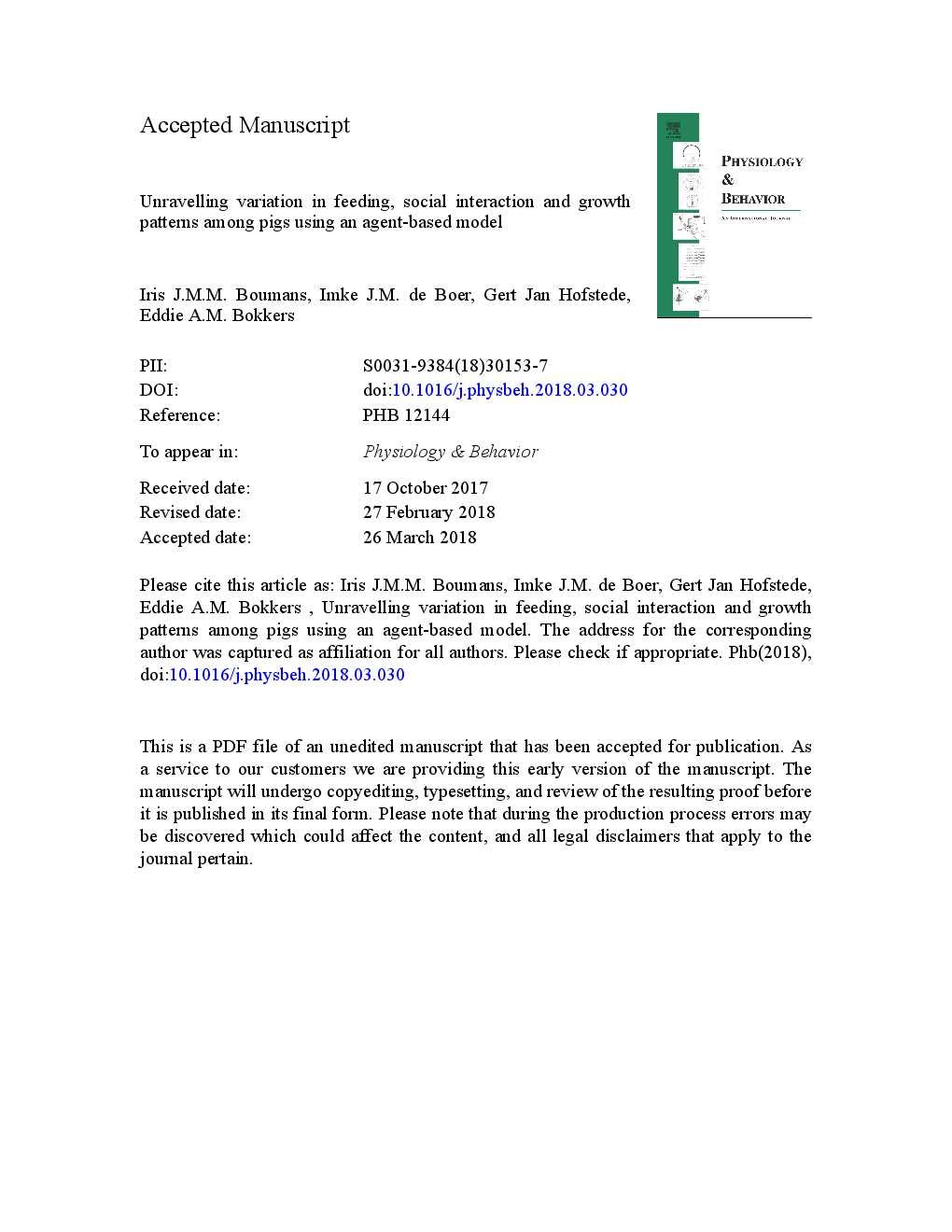Domesticated pigs, Sus scrofa, vary considerably in feeding, social interaction and growth patterns. This variation originates partly from genetic variation that affects physiological factors and partly from behavioural strategies (avoid or approach) in competitive food resource situations. Currently, it is unknown how variation in physiological factors and in behavioural strategies among animals contributes to variation in feeding, social interaction and growth patterns in animals. The aim of this study was to unravel causation of variation in these patterns among pigs. We used an agent-based model to explore the effects of physiological factors and behavioural strategies in pigs on variation in feeding, social interaction and growth patterns. Model results show that variation in feeding, social interaction and growth patterns are caused partly by chance, such as time effects and coincidence of conflicts. Furthermore, results show that seemingly contradictory empirical findings in literature can be explained by variation in pig characteristics (i.e. growth potential, positive feedback, dominance, and coping style). Growth potential mainly affected feeding and growth patterns, whereas positive feedback, dominance and coping style affected feeding patterns, social interaction patterns, as well as growth patterns. Variation in behavioural strategies among pigs can reduce aggression at group level, but also make some pigs more susceptible to social constraints inhibiting them from feeding when they want to, especially low-ranking pigs and pigs with a passive coping style. Variation in feeding patterns, such as feeding rate or meal frequency, can indicate social constraints. Feeding patterns, however, can say something different about social constraints at group versus individual level. A combination of feeding patterns, such as a decreased feed intake, an increased feeding rate, and an increased meal frequency might, therefore, be needed to measure social constraints at individual level.


